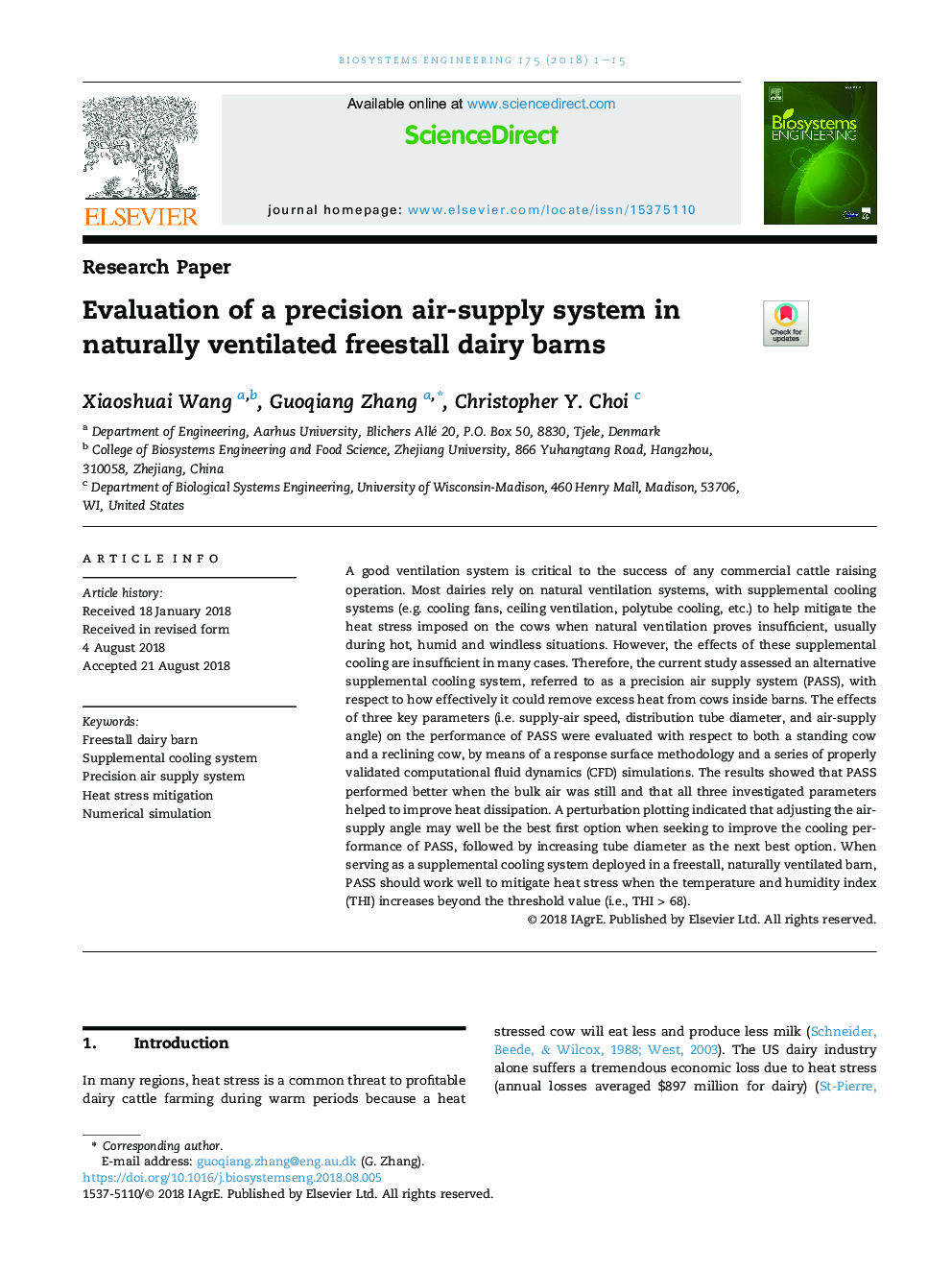| Article ID | Journal | Published Year | Pages | File Type |
|---|---|---|---|---|
| 8961656 | Biosystems Engineering | 2018 | 15 Pages |
Abstract
A good ventilation system is critical to the success of any commercial cattle raising operation. Most dairies rely on natural ventilation systems, with supplemental cooling systems (e.g. cooling fans, ceiling ventilation, polytube cooling, etc.) to help mitigate the heat stress imposed on the cows when natural ventilation proves insufficient, usually during hot, humid and windless situations. However, the effects of these supplemental cooling are insufficient in many cases. Therefore, the current study assessed an alternative supplemental cooling system, referred to as a precision air supply system (PASS), with respect to how effectively it could remove excess heat from cows inside barns. The effects of three key parameters (i.e. supply-air speed, distribution tube diameter, and air-supply angle) on the performance of PASS were evaluated with respect to both a standing cow and a reclining cow, by means of a response surface methodology and a series of properly validated computational fluid dynamics (CFD) simulations. The results showed that PASS performed better when the bulk air was still and that all three investigated parameters helped to improve heat dissipation. A perturbation plotting indicated that adjusting the air-supply angle may well be the best first option when seeking to improve the cooling performance of PASS, followed by increasing tube diameter as the next best option. When serving as a supplemental cooling system deployed in a freestall, naturally ventilated barn, PASS should work well to mitigate heat stress when the temperature and humidity index (THI) increases beyond the threshold value (i.e., THIÂ >Â 68).
Keywords
Related Topics
Physical Sciences and Engineering
Engineering
Control and Systems Engineering
Authors
Xiaoshuai Wang, Guoqiang Zhang, Christopher Y. Choi,
